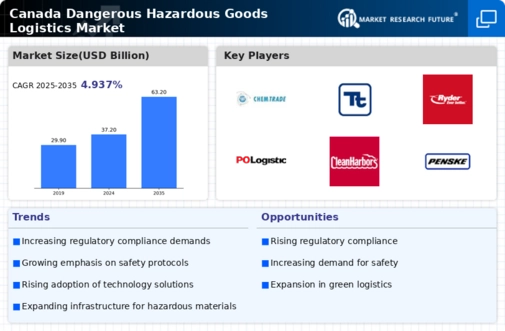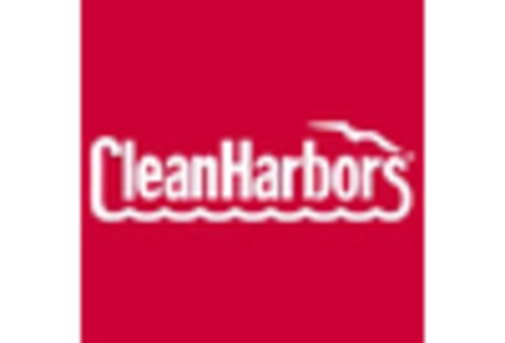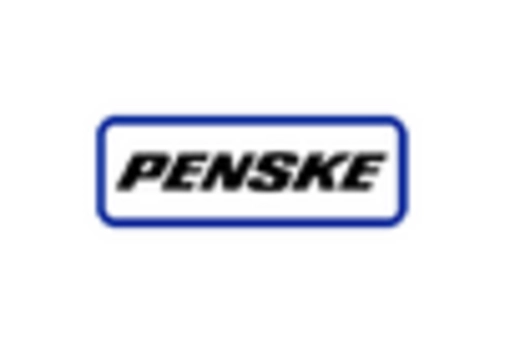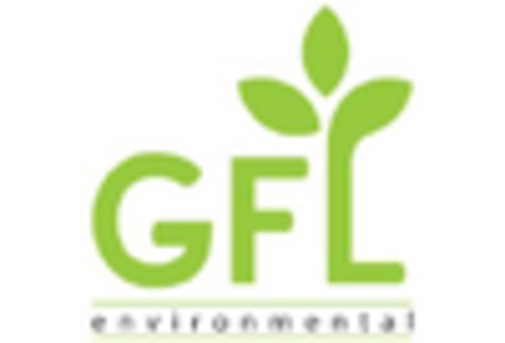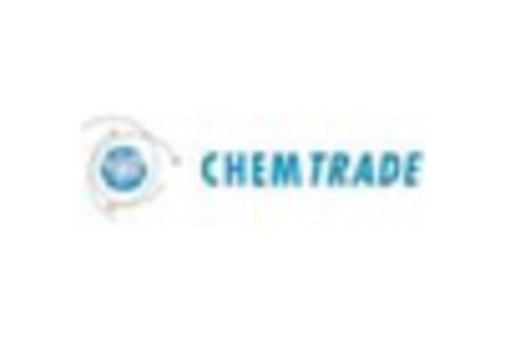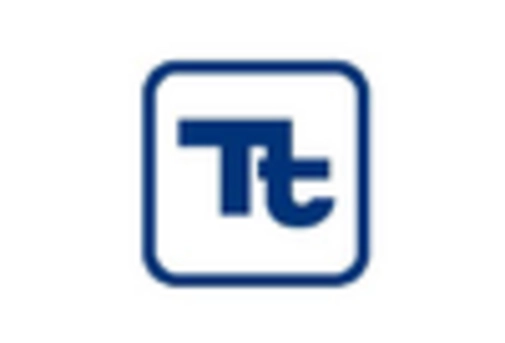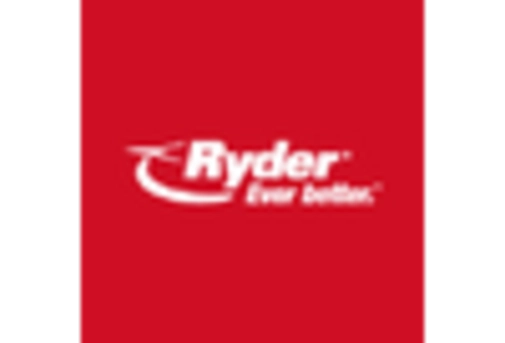Canada Dangerous Hazardous Goods Logistics Market Summary
The Canada Dangerous Hazardous Goods Logistics Market is projected to grow from 37.2 USD Billion in 2024 to 63.2 USD Billion by 2035.
Key Market Trends & Highlights
Canada Dangerous Hazardous Goods Logistics Market Key Trends and Highlights
- The market is expected to experience a compound annual growth rate of 4.94 percent from 2025 to 2035.
- By 2035, the market valuation is anticipated to reach 63.2 USD Billion, reflecting a robust growth trajectory.
- In 2024, the market is valued at 37.2 USD Billion, indicating a strong foundation for future expansion.
- Growing adoption of advanced logistics technologies due to increasing regulatory compliance is a major market driver.
Market Size & Forecast
| 2024 Market Size | 37.2 (USD Billion) |
| 2035 Market Size | 63.2 (USD Billion) |
| CAGR (2025-2035) | 4.94% |
Major Players
LTL Freight Solutions Inc, FedEx Corporation, Kuehne + Nagel International AG, Chemtrade Logistics Inc, Tetra Tech Inc, Brenntag North America, Ryder System Inc, Brink's Canada Limited, C.S. Logistics Inc, XPO Logistics Inc, TransForce Inc, CleanHarbors Inc, Penske Logistics, Schneider National Inc, GFL Environmental Inc


